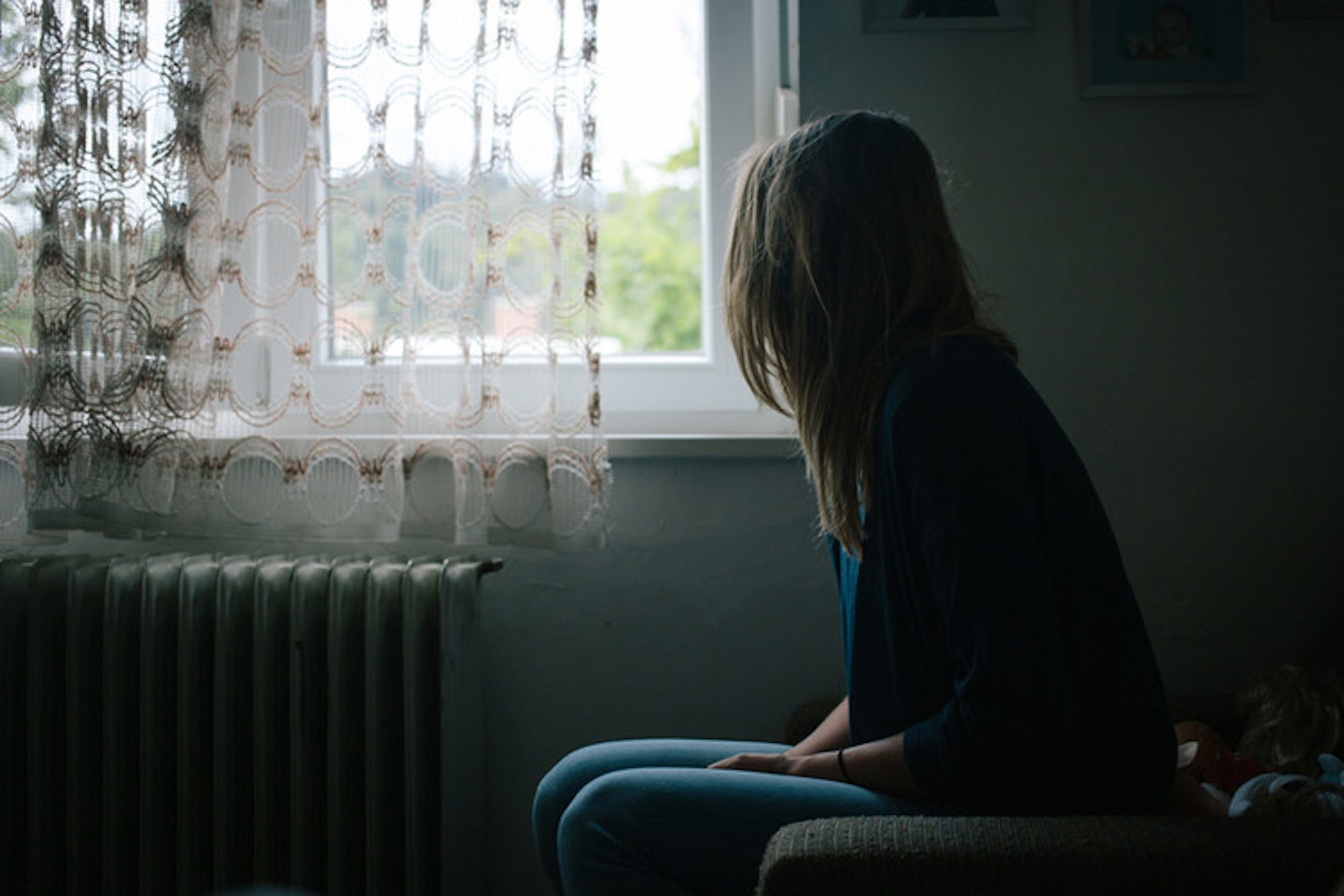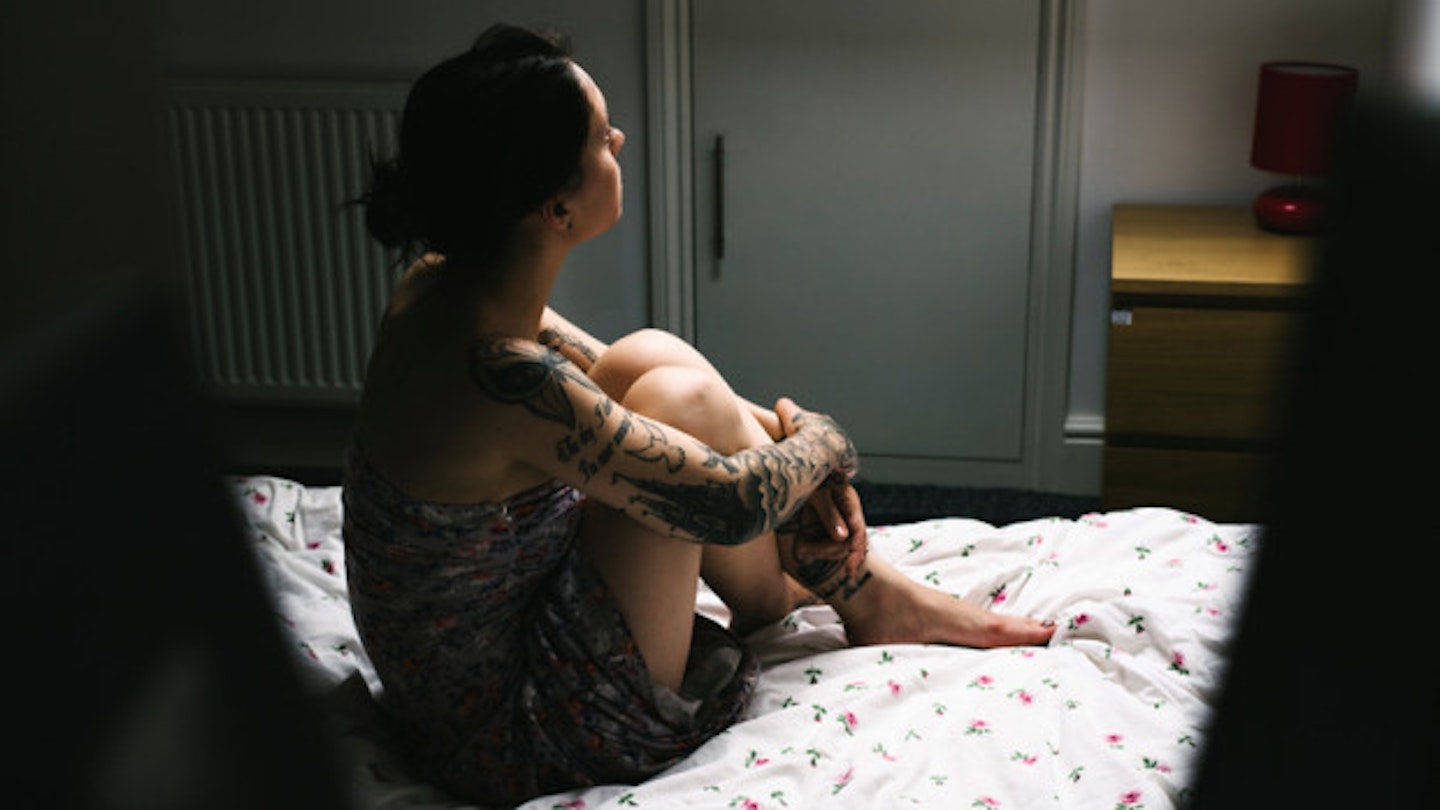Tweets don’t rape people, technology doesn’t physically abuse people and words typed in haste on a touch screen don’t wilfully violate people – real human beings are doing that. But if you’re in any doubt as to whether or not ‘rape culture’ exists, if you’re someone who doesn’t ‘believe’ in rape culture, I suggest you spend no more than three minutes searching posts under the #chedevans on Twitter.
Last week, after five years, Ched Evans was cleared of rape. There has been outrage about the verdict from victim support groups, Evans supporters and politicians, although they are by no means because all concerned for the same reason.
This week a group of 40 Labour MPs signed a letter, addressed to the Attorney General, calling a legal change following the Evans retrial.The specific aspect of this case was the way that the trial was conducted. They feel that the use of the complainant’s sexual history in Evans’s appeal and retrial sets 'a dangerous precedent' for future cases and may even deter the victims of rape from reporting the crime because they don’t want to have their own sexual history placed under a microscope and dissected by a room full of strangers.
‘The verdict and events in this case set a dangerous precedent that how a victim of rape, usually a woman, has behaved in the past can be taken as evidence of the way she behaved at the time of the alleged rape’, they wrote.
‘This will deter victims from disclosing their abuse and will reduce the number of victims presenting their cases to the police for fear of having their private lives investigated and scrutinised.’
No such precedent was set as it is permitted to use such evidence in 'exceptional circumstances'. As the law currently stands defence lawyers have been banned from raising the sexual behaviour or history of alleged victims since 1999, with the exception of exceptional circumstances. Vera Baird, QC, who was involved in making this change to the law has also said that this case raises questions about whether the Youth Justice and Criminal Evidence Act 1999 needs to be re-examined and possibly more tightly regulated.
As a year of transatlantic conversation about rape and consent, which has included the high profile cases of Brock Turner and Ched Evans draws to a close there are serious questions to be asked. Why do we still have such a problem with how cases of rape and sexual assault translate legally? Why does understanding of what does and does not constitute consent still seem to be so poor? The fact that we’re still asking these questions is proof that we aren’t yet at a point where we can talk about honing how we as a society respond to this issue in order to support victims as best we can, we’re still tackling the basics.
There has been no shortage of outrage, but has outrage ever been enough to change society? Already the media has moved on and yet, the numbers remain. There were 23,851 reported rapes in Britain in 2015 alone. How many convictions were there? 2,689. That means only 11% of the reported cases of rape resulted in a conviction. In 2011-12 10,160 rapes were reported and there were 2,414 convictions.
What do the numbers mean? Put simply it appears that reports of rape have doubled in four years while convictions have fallen. Why? Some think that women feel more empowered to report rapes than they did previously. But how do we explain such a low conviction rate? Well, depending on who you ask they mean one of two things: either men are 'getting away' with rape and the legal system isn’t working properly or women, in very large numbers, are 'crying wolf' and making false rape accusations which, given that there is little if nothing to be gained by doing this, seems not only unlikely but nothing short of fantastical. It's more likely that rape, as a crime, is difficult to prosecute because there are often no independent witnesses.Because of factors such as this many cases do not even reach the prosecution stage.
Whichever way you slice the statistics, one thing is certain. Despite the frequency of crimes which fall under the umbrella of rape, they don’t often prompt the intensity of outrage as the Ched Evans case. If they did our nation would be perpetually seething.
There’s clearly a huge problem and it’s a problem of two parts: it’s the fact that rape is occurring in such great numbers at all and then it’s that the legal system doesn’t seem to be working. As a society we are still having huge debates which have serious and wide ranging implications about how rape should and should not be dealt with: should a complainant’s sexual history be admissible in court (by the way it isn’t in Australia, Canada and America because they have more stringent rape shield laws than the UK )? Can a jury in a rape trial ever deliver a verdict without prejudice? Should anonymity for victims or the accused be allowed? How do we define consent? How can we ever, legally, prove that consent existed? We’re going over the basics, still trying to get away from speaking about female sexuality as a moral issue by looking for a woman’s prior chastity or dress sense to provide proof of a defendant’s guilt.
Is this a legal or a cultural issue? It’s both as Professor Clare McGlynn, author of Rethinking Rape Law: Internationals and Comparative Perspectives, notes. ‘It is a very complex picture’ she says, ‘I say this also because the experiences of victim-survivors vary hugely. Some have excellent treatment and support from the police; others have terrible experiences… In terms of being abusive, some practices within sexual offences trials can be experienced as abusive in terms of questioning.’
Professor McGlynn goes onto explain that ‘the criminal justice system is part of a broader culture which impacts on whether or not victim-survivors report experiences to the police and/or continue with a prosecution.’ So, it’s not enough to say that the law is the problem? ‘It’s not possible to isolate the legal system as the main stumbling block’ McGlynn says, ‘it is part of a broader picture of how society perceives rape and other forms of sexual assault.’

How we think about rape matters. How we talk about rape matters. What we understand as rape matters. It all determines how the media reports on rape, how juries perceive rape and, when all is said and done, it impacts on what we as a civilised society do about rape. When we’re still having conversations about whether or not consent classes are required, about whether or not to make sex education compulsory and having to repeat over and over again until we’re blue in the face that ‘nobody is ever ever “asking for it” ever’, let alone having debates about reforming rape law and improving victim support it’s clear that we aren’t doing enough to solve the problem that the Ched Evans trial has shone a light just one aspect of.
Professor Nicole Westmarland, the Director of the Durham Centre for Research into Violence and Abuse, who is known specifically for her work on rape and sexual assault explains that what goes on outside of our court rooms really does have a bearing on what goes on inside the, ‘we are all surrounded by messages that serve to minimise and hide sexual violence, and dismiss the experiences of many survivors. When headlines include words such as ‘sex pest’ or ‘took advantage of’ or when people hear ‘Savile jokes’ they are going to have a very different impact on different people.’ It also matters in terms of how it affects survivors of rape, ‘for them’ she explains ‘this cultural bombardment often serves to make them question their own experiences, blame themselves, minimise their experiences, and/or at the same time make them angry about the lack of cultural understanding of their experience. For perpetrators, these very same messages serve to minimise and make more acceptable and ‘amusing’ their actions – it helps them believe what they did was not ‘real rape’ but something else – something less serious.’
Even in 2016, the problem lies with the way we, as a society, perceive rape and sexual assault. Many outdated myths persist and archaic stigmas refuse to disappear.
We find ourselves in heavily contested territory when it comes to what is essentially the criminal violation of women’s bodies. This is nothing new, the criminal aspects of rape have long been argued over and debated. Feminist historian and author of Redefining Rape: Sexual Violence in the Era of Suffrage and Segregation, Estelle Freeman,has researched women and social reform. She has looked into UK rape laws went on to shape US law and what the lasting legacies of historic approaches to rape are.
Freeman says that ‘legally the term “rape” has a particular history, the legacy of which continues to influence what we think of as rape both legally and culturally.’ How does that manifest? First off all, she explains, rape was considered as a ‘violent act. If you didn’t show physical signs or injury then it wasn’t “real rape”. It was defined as an act committed by a stranger, historically, and not a family member, a friend or an acquaintance and it required the chastity of the woman. The historical crime revolved, in part, around a woman’s reproductive connection to sexuality and sexual violation.’
The crime of rape, Freeman says, is ‘bound up in the notion that if you “stole the virginity of a woman” then you ruined her honour, questions about paternity and how a woman’s marriageability is affected. In our patriarchal past a father or husband had control over the reproductive and sexual value of the daughter or the wife.’
We’ve come a long way since this, how can it affect the way Western society deals with rape today? ‘The law changed to consider rape as a crime against the person’ Freedman says, ‘or, rather, against the woman. But let me be clear the legacy of these patriarchal notions of protection and control runs very deep.’
As Freedman sees it, historically, when women gained rights – the right to vote, property rights etc. - we moved away from what she describes as ‘the honour system’. This posed the question of ‘what is rape and who or what is it against? When it was no longer about reproduction, virginity and marriageability it became about “where is the line that should never be crossed?” It has been a long time coming for women to be able to assert that unwanted sex of ANY kind falls under the category of rape.’

In her extensive writing on the subject Freedman explains how bound up in our perceptions of rape class and race are, even to this day, informing who is and isn’t likely to be believed. Part of this, she says, is because originally rape was a capital crime in both England and America. ‘There’s the famous quote from British Judge Lord Matthew Hale in the 1600s’ Freedman says ‘which still gets heard today, that rape is "an accusation easily to be made and hard to be proved and harder to be defended by the party accused…’ The implication is that rape is a very serious crime so you have to be sceptical and disbelieving because a claim of rape could lead to a man’s death. We haven’t had capital rape for a long time in either England or the US but that view, Lord Hale’s view, continued in the courts, in the decisions and the sentencing for a long time. The sense is that ‘we can’t just take a woman’s word’ so corroborating evidence is needed. This is very hard to find, often. And then there’s the questioning about past sexual experience because if she doesn’t have chastity to defend what’s the deal right?! Once she’s said yes to one man she’s lost her virtue.’
Does this explain why, despite how much progressive has been made in the last half century, people still want ‘perfect rape victims’? Yes, says Freedman. ‘It’s because the courts have historically acted in such a way – and they continue to ask questions about what she was wearing or whether she was asking for it.’
What’s clear is that rape has a devastating impact on victim-survivors and that the process of going through the courts is not necessarily any less devastating. Of course rape take many forms, some of them violent, but it is also always emotional. It provokes emotional reactions from juries, media, the public in general and, above all, in the person who is forced to confront a violation of their own body.
How can the law which is supposed to be ‘reason, free from passion’ quantify this emotional impact? How can juries which are made up of human beings, who bring all of their learned prejudices into a courtroom with them, assess such a crime without emotion?Is it reasonable to expect them to?
Is part of the issue the way we understand terms like ‘rape’ and ‘consent’ and the weight of history which such terms carry, whether we realise it or not?
Freedman thinks so. ‘Feminists of all colours and all backgrounds have been working to redefine the terms since the 1960s – for instance acquaintance rape or marital rape was only outlawed after the 1960s in the US’. It only became a crime in the UK in 1991.
What does redefining rape and changing the meaning of words actually achieve? ‘It’s saying “here’s a common experience that has not been taken seriously. We want to put that on the agenda”’ says Freedman, ‘feminists pushed very hard to change that and I think it’s taken a whole generation for people to come of age aware that “Yes! That is actually a crime!”’.

Professor Westmarland agrees, ‘the word “rape” encompasses so many different scenarios and circumstances. Similarly, “consent” is a term which means different things to different people’. However, she points out that it’s not simply a case of using different terminology. In fact, the historical weight, power and implicit value systems of terms like “rape” is something we should not shy away from. ‘There are lots of debates around whether we should use the term “rape” she says, ‘for many activists its essential that we continue to name the act for what it is. For some survivors this is also very important, but others struggle to identify what they have experienced as “rape” because of the legal and cultural messages that are given from a very young age about what “real rape” is.’
We need more than colour changing nail polish and consent classes to deal with what is quite clearly a rape problem. Neither of these bright ideas will stop rapes from happening or improve our criminal justice system. So where do we go from here? Professor Westmarland says ‘there definitely is a huge problem in how the criminal justice system deals with rape. We need to stop tinkering about with the edges and have a new whole scale review into both the laws themselves and the criminal justice system procedures.’
Professor McGlynn agrees that urgent reform is needed. ‘However’, she says, ‘reform of the conventional criminal justice system is not the only solution. We must look beyond conventional criminal justice to better secure justice for victim-survivors.’ What would that look like? ‘Restorative justice is one possibility’ she says, as is ‘encouraging more guilty pleas.’
‘Misogyny is such a deep problem’ Freeman adds, ‘as we can see in the United States right now. We need to address the hostility towards women’s authority and power. That would be a starter. And we must always attend to the race and class dynamics when it comes to which women are believe and which women aren’t, which men get away with rape and which men don’t.’
It’s important that we do not separate rape from rape culture; rape jokes undermine real experiences whether they're made IRL or on Twitter. It’s crucial that we improve sex education; we cannot have generations growing up without an understanding of consent they deserve to be educated and the rest of us need to be re-educated. It’s also time that we reform rape laws and recognise that people do not somehow lose their cultural prejudices once they set foot over the threshold of a courtroom. In California the law was changed after the Brock Turner case whether recent events on this side of the Atlantic will provoke more than temporary outcry remains to be seen.
As a society, when it comes to how we deal with rape, we really aren't there yet.
*This article was amended on 31st October to clarify why reports of rape are being compared to convictions as opposed to prosecutions.
You might also be interested in:
Brock Turner Is A Reminder That It's 2016 And We Still Don't Understand Consent** **
Follow Vicky on Twitter @Victoria_Spratt
This article originally appeared on The Debrief.
